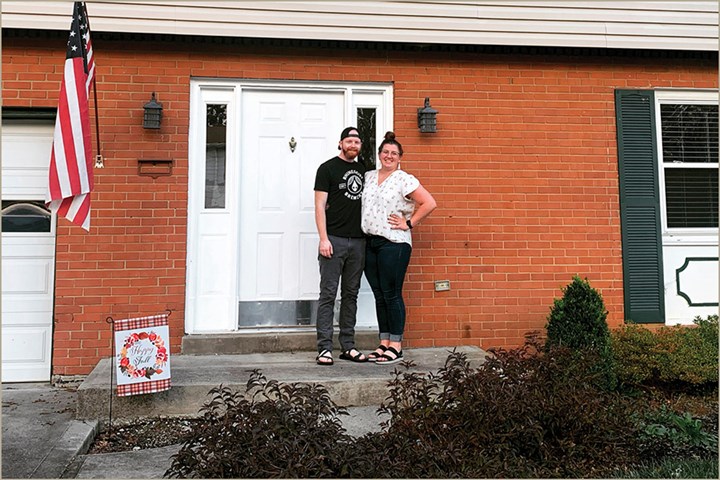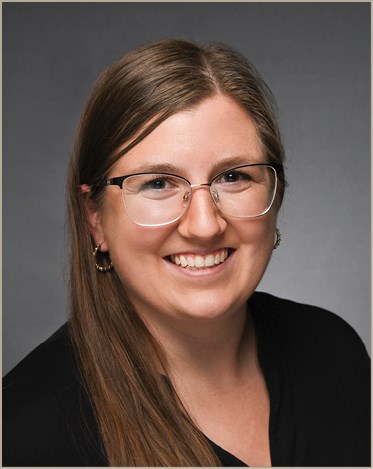Embracing the Quarter-Life Crisis
Sarah Barnett, Assistant Digital Editor, Plastics Technology and Products Finishing discusses embracing her quarter-life crisis and being ready for whatever comes next.
It’s okay not to know what comes next
Employee Spotlight Profile
Sarah Barnett, Assistant Digital Editor
Plastics Technology and Products Finishing
“We shouldn’t be asking college freshmen what they want to do for the rest of their lives, they’re still kids!” Even after graduating, it's still a challenge to figure out what we want to do for the rest of our lives.
May I introduce a new idea to you: the quarter-life crisis. After graduating college, we scramble to find a job and often take whatever we can get first and embrace our first “big kid” job. Then after a few years, the dust settles, and we realize we hate it.
In rushes all the thoughts; What am I doing? Why is this job so terrible? Should I go to grad school? Am I in the wrong field? What do I even want to do? Can I manage to be a stay-at-home pet parent?
I hope I’m not alone in saying I had a quarter-life crisis. I finished my degree with the knowledge of what I didn’t want and a job at an arts and culture magazine that was closing. I ended up back at my dead-end college job working part-time (read: full-time hours/responsibilities, part-time benefits) thinking I would find the perfect job soon. Three years and one global pandemic later, I was still there.
The next logical step was obviously to apply to any and every job in a broad Indeed search (“media” in Ohio). I applied to hundreds of jobs over the course of six months once I reached this step. The hard realization I had to have to get to this step was that the job I thought I did well (I did) and enjoyed didn’t have the same respect for me that I did for them.
Applying for jobs is a brutal process. And 10 times harder when your current job has nothing of relevance to what you want to do. More often than not, after applying, you get no response. Then, every once in a while the rejections with “kind regards” all seem to come at the same time. It’s a big hit to the ego. All those whys and what-ifs tend to creep up with each new rejection.

Over the course of one year, my (now) husband and I got married, both got new jobs (mine in a new industry), bought a house, and moved to a new city. This was the day we closed on our house and the official end of the quarter-life crisis.
Thinking of what comes next is never easy. Lucky for me, I found myself with a large chunk of time being unemployed because of COVID. Everyone had their own experiences with 2020, mine just happened to be really nice. I wasn’t working, I had enjoyable days, it was summer, and I got married. I was, however, on the job hunt, which was not fun. Everything I had thought before was still true and I had to figure out how to get to where I needed to be.
With this “time off,” I took advantage of it and earned a bunch of free Google certificates, including one for analytics. I think a large part of getting out of a funk is to continue learning. I also think there are ways to advance without going to grad school. I saw a consistency of analytic skills in jobs I was applying for but nothing about my resume reflected that I had that skill. Getting Google-certified, I believe, helped me get a few more interviews in my job search.
It’s a lot of work to grow and it's very respectable for anyone to go through a change, go to grad school, or use their free time for career growth. That coincided with a little bit of luck and someone taking a chance on me. I ended up in a job that I never thought I would get to. I’m able to use my skills, old and new, to create content and work with some amazing people. And I’m really lucky.
I say all this, sharing part of my story, to reiterate something my mom always told me growing up: Nothing is ever set in stone.
Change is hard but always possible. I hope I get to enjoy this next quarter of my life before the mid-life crisis but maybe I just got to it early. Either way, I’m ready for whatever comes next.
Need more information?
Sarah Barnett, Assistant Digital Editor
Plastics Technology and Products Finishing
About the Author
Sarah Barnett
Sarah is the Assistant Digital Editor for Plastics Technology and Products Finishing, managing social media pages and other digital projects. As a former editor in Dayton, Ohio, Sarah comes to Gardner in 2021 with an eagerness to learn the industry. Sarah holds a B.A. in Communications/Media Studies from Wright State University.
RELATED CONTENT
-
Getting Comfortable Outside of my Comfort Zone
Digital Assistant Editor Nate Fields describes his path toward working in the manufacturing industry.
-
Brand Insistence Vs. Brand Loyalty
While it may be difficult to determine if you have achieved true, valuable brand loyalty, it is not impossible. Here’s a look at an important issue in terms of achieving true brand value.
-
Finding Opportunities in the Chaos
2020 has been a disruptive year, but one that will likely contribute to greater 3D printing adoption and more sustainable manufacturing. Stephanie Hendrixson, Senior Editor for Additive Manufacturing and Co-Host of The Cool Parts Show, writes about accelerating trends in AM and staying flexible in the face of a pandemic.


